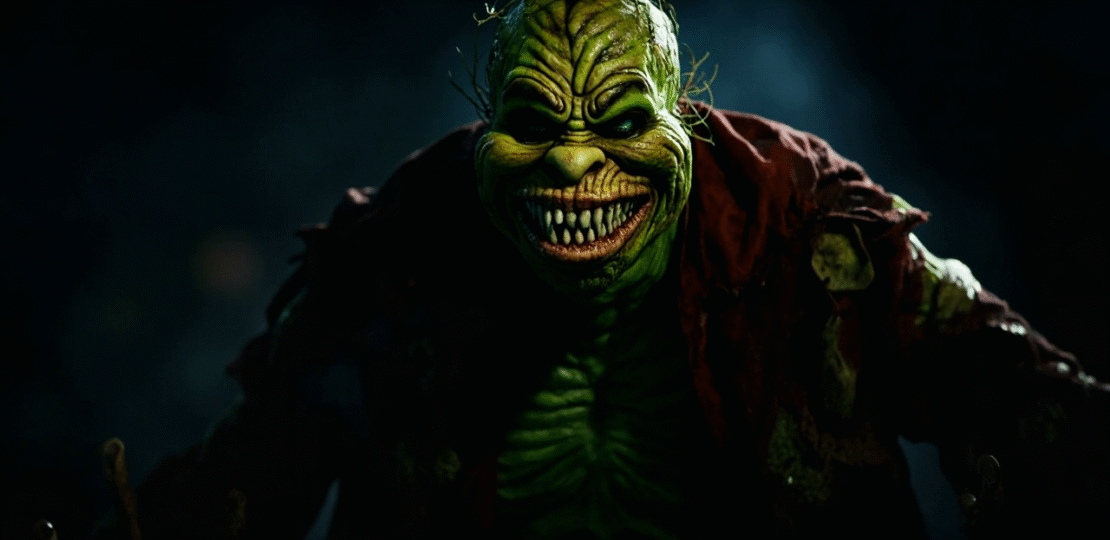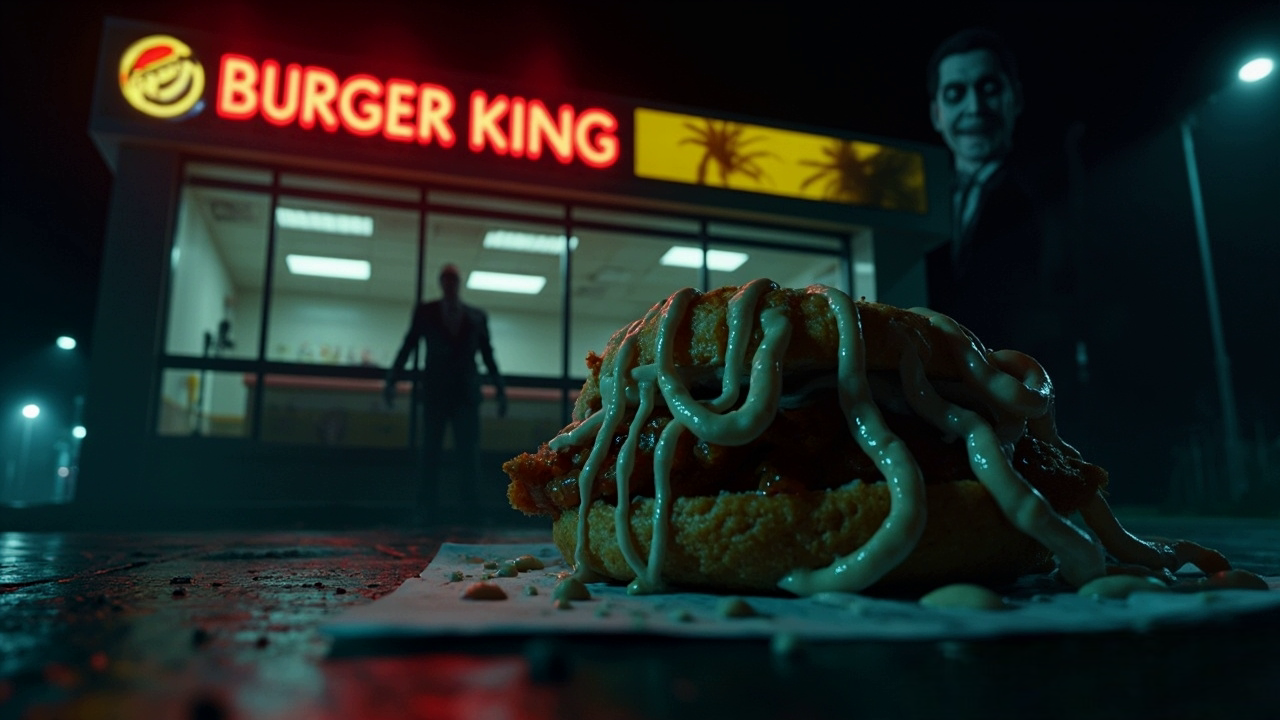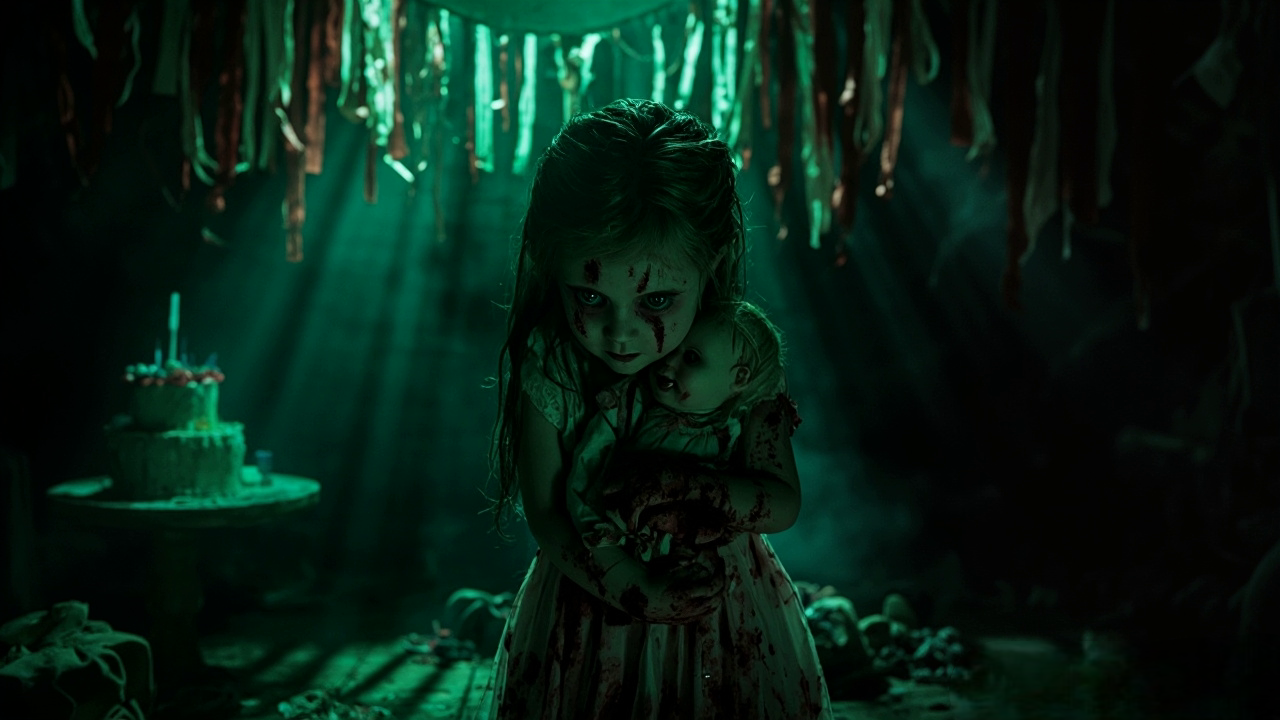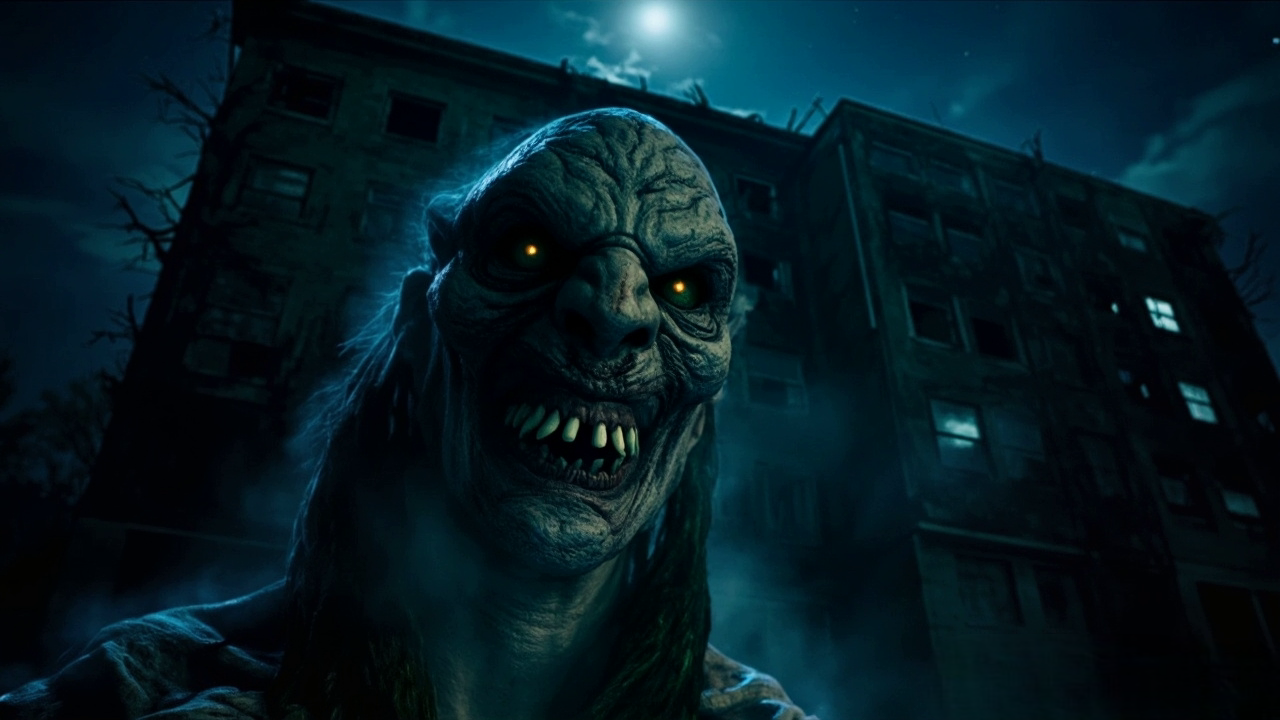
It started in the small mountain town of Pine Hollow, a quiet, snowy place tucked far from the modern world. People there cherished Christmas like a sacred tradition. Every December, houses lit up like storybooks, fireplaces cracked with warmth, and laughter echoed through the streets. The townsfolk believed in joy, family, and good cheer—but they also whispered of something darker. A shadow tied to the mountain looming above the town: Grendel Peak. Children were told to stay away from the peak, not because of wolves or cliffs, but because of an ancient warning that had been passed down for generations. “Never go near the peak,” they were told. “The Grinch watches. And he remembers.”
Of course, most people laughed it off. The Grinch, after all, was just a character from a children’s book, a green cartoon with a change of heart. But in Pine Hollow, the legend had sharper teeth. According to the town’s oldest records—and a few secret accounts never published—there once was a creature who lived in isolation on that mountain. Twisted and hateful, he loathed everything the town stood for. Not just Christmas, but happiness, connection, and noise. He was said to come down during the holidays to steal decorations, silence music, and sometimes, just sometimes… people. The stories claimed that those taken by him were never found. Their names were buried quietly, marked as missing in snowstorms or accidents, but the locals always knew. They just didn’t say it aloud.
That winter, the legend returned. It began with a disappearance. On the night of the town’s annual tree lighting ceremony, seven-year-old Charlie Marsh vanished without a trace. One minute, he was standing by the gingerbread booth with a candy cane in his hand, smiling up at the glowing lights. The next, he was gone. No scream, no struggle. His parents thought he’d wandered off, but when the entire town searched and found nothing—no tracks in the snow, no signs of movement—it was clear something else had happened. His older brother, Elliot, seventeen and skeptical of all things supernatural, refused to believe Charlie had just “disappeared.” He searched day and night, calling for his brother in every alley, every inch of forest edge. After three days, people began to move on. But Elliot didn’t. He couldn’t.
On the fifth night, Elliot awoke to a tapping at his window. At first, he thought it was a branch, but the pattern was rhythmic—intentional. He opened the curtain and saw nothing. But on the floor, just beneath the windowpane, was a folded piece of paper. It was old, yellowing, and torn at the edges, like it had been soaked in something foul. Written in jagged, childlike handwriting were words that made his stomach twist: “He’s mine now. You laughed at me. You called me names. But I never left. Come find me… if you dare.” There was no name, but in the corner was a greasy green smear. It smelled like rot and pine needles.
Most people would have run. Elliot packed a flashlight, his father’s hatchet, and Charlie’s red scarf, then slipped out of the house before dawn. The cold bit at his skin, and the snow came down heavier the closer he got to the woods. He aimed for Grendel Peak, ignoring the fear twisting in his gut. The forest greeted him like a predator—silent, watching, waiting. Branches creaked above, and somewhere in the distance, he heard what sounded like bells. Not jolly, church-like bells, but warped and off-key. After an hour of walking, Elliot stumbled across something half-buried in the snow: a small, wooden sleigh. Not the kind kids played with. It was ancient, carved with strange symbols and smeared with something dark. Piled on top were torn, eyeless stuffed animals, like a twisted offering. Sitting at the center was Charlie’s broken candy cane.
Elliot turned to run but froze. A figure stood in the trees—tall, gangly, inhuman. It was hunched but towering, its limbs long like twisted branches, its body covered in coarse, matted green fur. Its face was the worst part: sunken yellow eyes and a smile that stretched too far across its face, revealing rows of crooked, yellow teeth. “Naughty, naughty,” the creature hissed, “always poking where you shouldn’t.” Elliot screamed and swung the hatchet, but it passed through nothing but cold mist. The figure vanished, and the forest fell silent again.
He ran deeper into the woods until he found a cave entrance, half-hidden by thick vines and snow. The air inside was warm—unnaturally so. The walls were lined with torn wrapping paper, some still stained red. Bows dangled from the ceiling like mutated flowers. A faint melody played somewhere deep within, a slowed, distorted version of “Jingle Bells” echoing eerily through the tunnels, laced with background whispers and what sounded like muffled cries. As he moved deeper, Elliot found a large chamber filled with people hanging from the ceiling—wrapped in strings of glowing lights like ornaments. Their faces were pale and frozen in expressions of silent terror. Some had been there for years. But one was moving.
It was Charlie.
Elliot ran forward, but before he could reach him, vines shot from the walls, wrapping around his arms and neck, pulling him back. The creature stepped out from the shadows, fully visible now. Its body was bloated and decaying, its fur patchy and wet, its smile wider and crueler than before. “You humans,” it whispered, “you mock those who are alone. But not anymore. Now I wrap you. Now I keep you.” Elliot struggled, screaming, kicking, desperate. The walls of the cave pulsed like they were alive. The Grinch moved closer, raising one long claw toward Elliot’s throat.
And then, warmth. A glow from his pocket. It was Charlie’s scarf—handmade by their grandmother, stitched with silver thread. Elliot remembered the old family tale: “Silver keeps evil away.” The scarf burned hot in his hands. With his last ounce of strength, he wrapped it around his arm and swung it at the vines. They recoiled, screeching in pain. He slashed again, freeing one arm, then another. The Grinch lunged, but Elliot ducked and drove the scarf into its chest. The creature howled, its body smoking.
Elliot ran to Charlie, cutting him down. The boy was cold but alive. “You came,” Charlie whispered. “I told you I would,” Elliot replied, lifting him. Behind them, the Grinch shrieked in fury, the cave collapsing in on itself. The brothers sprinted through the tunnels, dodging falling rocks and slashing vines. Faces formed in the walls, eyes watching, mouths screaming. The creature chased them, its limbs scraping along the stone, howling like a banshee.
As they burst into the cold night air, the church bells in Pine Hollow rang out—midnight mass. The sound hit the creature like fire. It screamed, its body unraveling into smoke. Elliot and Charlie collapsed in the snow, gasping for air.
They were found an hour later by a search party. Frostbitten, bruised, but alive. Elliot told them everything. No one believed him. They said it was shock, trauma, hallucination. But he knew. And Charlie knew. That night, after the doctors checked them and the family was reunited, Elliot found one last note on his windowsill. It read: “You may have escaped. But I’m not gone. Every Christmas, I return. And next time, I won’t be so kind.” There was no signature—just a green fingerprint and a small tuft of red fur.
Now, years later, Pine Hollow doesn’t celebrate Christmas like it used to. The lights are dimmer. The music is softer. The laughter is forced. People whisper of shadows moving near the peak, of strange howls in the night. Because they know. The Grinch isn’t a joke. The Grinch isn’t a cartoon. And the Grinch isn’t gone.
He’s watching.
He’s waiting.
And when the bells ring again… he’ll come down the mountain.
RELATED POSTS
View all



